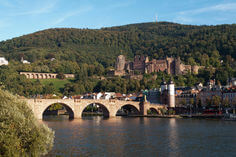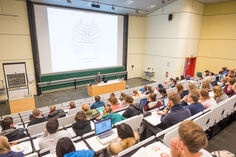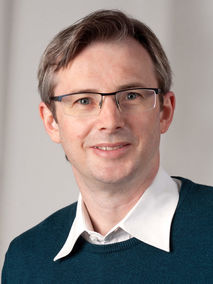Horizon Europe (2021-2027)
Horizon Europe is the European Union's ninth framework program for research and innovation and the successor to Horizon 2020. It will be in place for seven years (2021-2027) and has a budget of around EUR 95.5 billion, making it one of the largest public funding programs in the world.
The program’s goal is to build a knowledge- and innovation-based society and a competitive economy while contributing to sustainable development.
Horizon Europe is structured into three program pillars (Scientific Excellence, European Industrial Competitiveness, Innovative Europe) complemented by the funding of activities which strengthen and increase the participation of the European Research Area.
I: Scientific excellence
- European Research Council
- Marie Skłodowska-Curie actions
- Research infrastructures
II: Global challenges and European industrial competitiveness
- health
- Culture, creativity and inclusive society
- Civil security for society
- Digitalisation, industry and space
- Climate, energy and mobility
- Food, bioeconomy, natural resources, agriculture and the environment
- Joint research centre
III: Innovative Europe
- European Innovation Council (EIC)
- European Innovation Ecosystems
- European Institute of Innovation and Technology (EIT)
There are no major changes to the participation rules, funding conditions and funding quotas planned for Horizon Europe when compared to its predecessor, Horizon 2020.
The Horizon Europe funding program offers a range of support options for collaborative projects, individual funding, coordination and support measures as well as other funding instruments.
Important persistent features in Horizon Europe are
- Equal opportunities and gender
- Ethics
- Support for small and medium-sized enterprises
- International co-operation
- Sustainability and climate protection
- Synergies with other EU programs.
Application
In Horizon Europe, project proposals can only be submitted within the framework of corresponding calls for proposals. The calls are published in annual or multi-annual work programs, which contain, among other things, the thematic and structural specifications, the respective dates for the calls’ opening and closing, the evaluation criteria and information on the planned budget.
The European Commission publishes the work programs and the individual calls for proposals in the Funding & Tenders Portal. Applications are also submitted via this portal, in one or two-stage procedures depending on the call. In the one-stage procedure, a full proposal must be submitted within the specified submission deadline. In the two-stage procedure, a project outline is submitted in the first stage and applicants are only invited to submit a full proposal in the second stage upon invitation.
If you have any questions regarding the application process, please do not hesitate to contact the Dean's Office for Research.
Important EU news
- Reimbursable cancellation costs due to COVID-19 in Horizon 2020 projects
If you have to cancel trips or events as part of your H2020-funded project due to COVID-19, for example, please contact your Project Officer immediately regarding eligibility for reimbursement of the costs incurred.
Further information from the EU Commission can be found in the FAQs of the National Contact Point Legal and Financial Affairs (point 8.9). - Clinical trials: Billing of "unit costs" as a new option
- Template for clinical trials updated
- Open access funding possible for publications from completed FP7 projectscts



![[Translate to English:] [Translate to English:]](/fileadmin/_processed_/9/b/csm_Firefly_Abstract_organic_flow_resembling_blood_vessels_shaped_as_a_tool__composed_of_glowing_651800_26778ea790.png)


